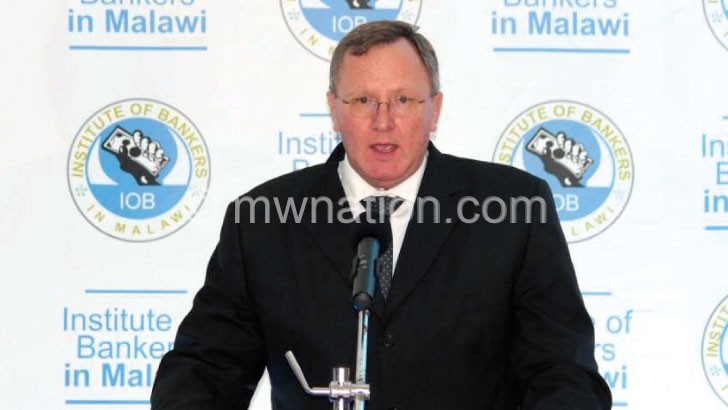Financial inclusion Remains a challenge
The Bankers Association of Malawi (BAM) has said while the banking sector remains the support centre of financial inclusion, the quest for a more sustainable financial inclusion regime needs a multi-sectoral approach to motivate people to be financially included.
Paul Guta, president of BAM—a grouping of nine commercial banks—said this on Friday in Blantyre during the 10th Bankers Dinner and Dance for Institute of Bankers (IoB) Malawi under the theme Financial Sector Synergies: A Catalyst for Financial Inclusion.

He said local banks have registered achievements over the years to woo the unbanked, but challenges still remain.
Guta, who is also managing director of Nedbank (Malawi) Limited, expressed worry that the total number of bank accounts is about two million out of a population of about 18 million as at June 2018, representing a meagre 20 percent.
He said: “However, when you consider that a good number of those with bank accounts are also multi-banked, with some also holding more than one account at the same bank, the real penetration rate begins to shy-off to much lower levels which we are yet to quantify.”
Guta said while challenges still remain, the sector has been doing well in supporting businesses as evidenced by the Ease of Doing Business Global Index which ranked the the country’s banking sector at number six out of 190 countries surveyed by the World Bank.
“While our sector has been battered, at times with strong aggression, for the apparent slow or no response to downward changes to the bank or policy rate of the Monetary Policy Committee, to the contrary, data from 2013 to 2018 suggests that while the policy rate has reduced by 1 100 basis points [bp], the average lending rates in the banking sector have reduced by 1 800bp, which is a good 700bp more than what the policy rate has achieved,” he said.
Speaking earlier, chairperson of IoB Malawi Eric Ouattara, who is also managing director of FDH Bank, said the main goal of financial inclusion is to improve the range, quality and availability of financial services and products to the unserved, under-served and financially excluded.
“Financial inclusion embraces certain key principles which we consider critical for delivering a broad range of quality financial services and products to the most vulnerable in our society who comprise both the unbanked and the under-banked,” he said.
Keynote speaker at the event, Corrie Mulder, chairperson of Malawi Microfinance Network, called for collaboration between microfinance and the banking sector in exploring mutual benefits for clients.
“Financial inclusion is one of the most crucial items on the agenda. There is huge number in the population of Malawi which is not included and does not have access to financial services which means the ability to break the cycle of poverty and build sustainable businesses is hampered because they cannot get access to finance,” he said.
During the event, IoB Malawi, the training arm of BAM, awarded six students who did well in banking courses. n





